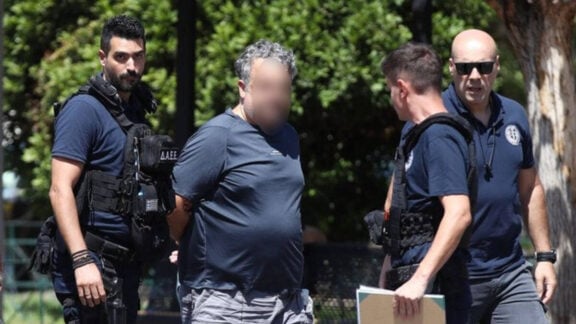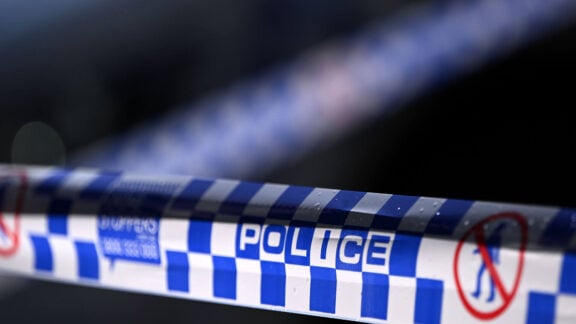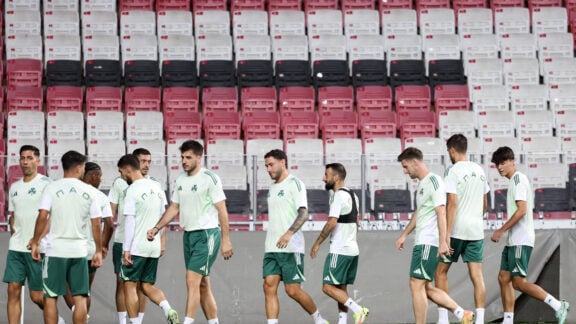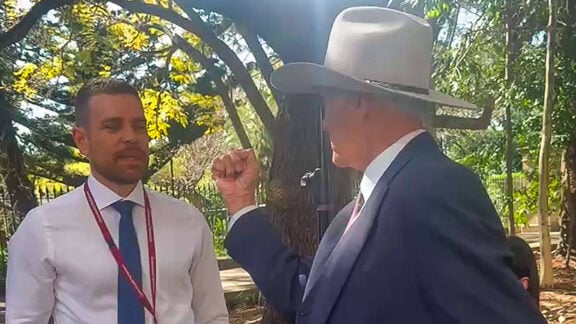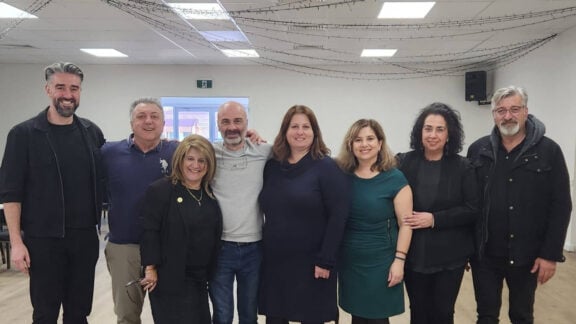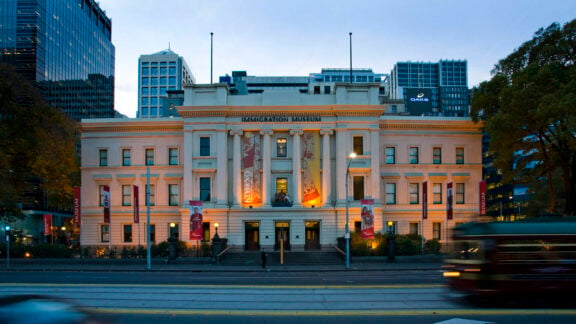The coroner in the case of Greek Cypriot Australian Thanasis Nicolaou, who went from Melbourne to serve in the armed forces of Cyprus 19 years ago, has concluded that he was strangled. For nearly two decades the authorities insisted it was suicide.
“It’s not justice, it’s moral satisfaction,” his mother said.
Forensic examiner Doria Varoshiotos handed her decision to the Limassol Court on Friday regarding the death of 26-year-old Thanasis Nicolaou, who was found dead on September 29, 2005, under a bridge in the village of Alasa, near Limassol.
In 2005, 26-year-old Thanasis Nicolaou told his mother that he would “return to Cyprus and serve in the army for 50 years”, when he learned that a prerequisite for returning permanently to Cyprus from Australia would be his six-month military service. Unfortunately, he was murdered.
“The truth in Thanasis’ case was revealed by the incontrovertible evidence found by Mrs Karagianni (Pathologist). She clearly expressed her scientific findings regarding the case. I particularly hold what she said that it does not express a personal opinion as the actual findings are based on relevant literature she provided. She documented the references that the deficiency is an injury occurring in life from strangulation,” said Varoshiotos, accepting the position of private forensic examiner Dr Karagianni, whom Thanasis Nicolaou’s family had hired.
“I accept her position that the exudates prove strangulation. I accept her position that the fracture occurred in life,” said Varoshiotos.
The announcement of the decision on Friday, saw the Nicolaou family and friends, relatives and ordinary citizens erupt in applause.
“Thanasis experienced nightmarish moments in the army”
In her extensive report, the examiner highlighted that the inquest into Thanasis’ death was painful and marked by tensions and objections between the two sides, but notes that it remained within the framework.
Furthermore, she made a detailed reference to the history of the case, “the nightmarish moments Thanasis experienced in the army with bullying and abuse”.

She also referred to the day he was found dead, the forensic examination by Cypriot government pathologist Panikos Stavrianou (later an MP for AKEL), as well as the actions of the Cypriot Police.
Additionally, she referred to the two previous inquests into the death and the investigations that were conducted, as well as Cyprus’ conviction by the European Court of Human Rights (ECHR) for mishandling the case.
“It’s not justice, it’s moral satisfaction”
Thanasis’ mother, Andriana Nicolaou, who for 19 years ran campaigns in Cyprus and Australia insisting that her son was murdered and did not commit suicide, shouted in court, “There is Justice”.
“It’s not justice, it’s moral satisfaction, and today this decision is the fruit of my labour. It’s not justice,” she later told the media.
“Justice is for those who killed my child and those who covered it up for so many years to be punished. Even at the last minute, light defeated darkness. I thank God who gave me the strength, the enlightenment, and the patience to endure all these years, this ordeal all these years. For two decades, we fought to prove the truth that tarnished his name with the stigma of suicide. Everyone did everything to cover up the brutal crime and to save whom? Drug traffickers and murderers? We didn’t lose him to illness, accident, or in war to say it’s God’s will for the homeland. Their entire effort, the army, the police, and the Legal Service, was to turn the victim into the perpetrator and the perpetrators into victims, in order to save the murderers to roam free and unpunished, as it happened,” she added.

“Today’s decision will not bring my child back to me. But neither will it bring back the life they destroyed for me. However, it gave hope to justice for the restoration of the rule of law.
“From the first moment, the crime was obvious. At the scene. From the first moment, I shouted that they had killed my child. They wanted to cover up the crime to protect someone, but no one can deceive a mother,” Nicolaou concluded.
A two-decade Odyssey
In October 2021, the Attorney General of Cyprus appointed two independent criminal investigators to once again investigate the case, using evidence that emerged from the excavation of Thanasis Nicolaou’s bones.
The excavation revealed that a bone (hyoid bone) located at the base of the neck was broken, indicating that the 26-year-old had been strangled and then the perpetrator or perpetrators threw the body off the bridge to make it appear as a suicide.
Sand was found in Thanasis’s mouth despite there being no sand under the bridge. However, the investigators at the time claimed that it had rained, and a stream came down, causing sand to accumulate in the victim’s mouth. In reality, not a single drop of rain had fallen.
Mother never stopped demanding further investigation into the murder
All these years, Thanasis’s mother stood outside the Presidential Palace, the Courts, the Attorney General’s Office, the Police, the National Guard General Staff, and wherever else she could, calling on the authorities insistently to solve her son’s “murder”.
After Cyprus was convicted by the ECHR, a new investigation was conducted as if it were a criminal act, but without leading to any conclusion once again. The ECHR in its decision found that there was an incomplete investigation of the case and awarded compensation to the family.
The other soldiers in his group, who had been suspected of intimidating him, were examined, and they even provided DNA samples without any conclusion.
As part of the investigation, toxicological examinations were conducted, and other actions were taken, including the excavation of the remains. That included four inquiries leading to separate investigations, three interrogations, while seven forensic reports were drawn up with different approaches from two forensic doctors.
Whether the case will lead to the identification of the perpetrators is still to be determined.
Prosecuting the forensic doctor and three police officers for negligence during the investigations conducted since 2005 has been proposed. The most likely scenario is for the Attorney General to persist in his position to archive the case due to lack of satisfactory and timely evidence justifying prosecutions.
The coroner’s inquest, which concluded, confirms the murder but does not assign responsibilities either.

Forensic pathologist Stavrianou to seek judicial annulment
Forensic pathologist Panikos Stavrianou reacted immediately to the conclusion of the Limassol coroner.
Stavrianou instructed his lawyer Andriana Klaidi to proceed and challenge the conclusion with the aim of its annulment.
Information from Cypriot news outlet Philenews indicates that an application will be submitted to the Supreme Court for the issuance of a privileged order in the form of a certiorari, requesting the annulment of today’s conclusion of the coroner.
Stavrianou was the then government forensic pathologist who had conducted an inspection together with forensic pathologist Nicola Haralambous at the scene and subsequently performed an autopsy on the body of Thanasis Nicolaou, concluding that the 26-year-old national guard’s death was due to a fall from a height and suggesting suicide, ruling out the possibility of murder.
The forensic pathologist continues to support his initial position that Thanasis’s death was not due to criminal action, hence his reaction to the coroner’s conclusion.
The coroner did not allow Stavrianou to testify during the coroner’s inquest, while in the conclusion of the criminal investigators Matsas-Alexopoulos, blame was attributed to the forensic pathologist as well as three officers of the Limassol police department for negligence.
Family lawyer Leto Kariolou had also requested Stavrianou’s departure from the courtroom, stating she would raise objections to the forensic report he prepared and intends to present, citing concerns she wants to address during his testimony.

“On Saturday morning, we received a new forensic report prepared on December 15, 2023. Once again, the Legal Service engages in an unacceptable action to submit Stavrianou’s report. The Legal Service has been attempting to prove for 18 years since Thanasis Nicolaou’s death that he committed suicide. This attempt at a surprise submission is unacceptable,” Kariolou told Philenews.
“The Legal Service is anything but seeking the truth,” she added, describing it as a “systematic and ongoing effort to cover up.”
The second family lawyer, Athena Dima, asserted that it is not a memorandum but a new forensic report. She claimed it is the prosecution’s tactic to introduce the report indirectly, given it did not pass the first time, and now they attempt it indirectly with similar phrasing.
Dima even mentioned that Stavrianou took nine months to present a four-page report initially and has now prepared a new 49-page report.
She suggested that if Stavrianou’s new report is accepted, the court should allow time for a new report opposing it to be prepared.
On behalf of the Legal Service, the representative expressed regret for the family’s concerns and stated that the Legal Service is not against the family; on the contrary, they supported and stood by them.
She referred to actions taken with the consent of the Legal Service, accepting all the family’s requests.

